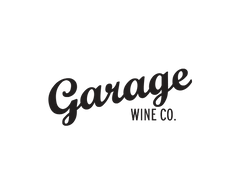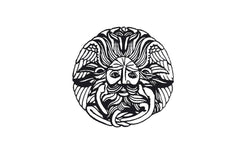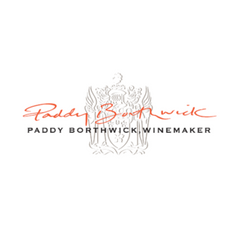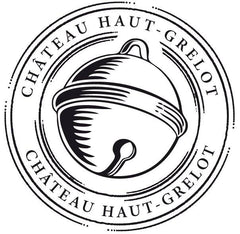303 products

- Red Wine, White Wine
- Garganega, Marsanne, País, Roussanne, Viognier, Xinomavro
- Sustainable
- Dry
- 750ml
About the Winery
Azienda Agricola Tessari

The Tessari family have Soave in their blood. For three generations they have been extracting delectable wine from the well cared for vines of their Monteforte d’Alpone vineyards. With only a little over a hectare of Garganega grapes in the prestigious volcanic solis of Soave Classico, Antonio Tessari hand dug his cellar back in 1933 and started the legacy that continues today with his grandchildren: Germano, Antonio and Cornelia.
From vineyard to bottle, these three siblings oversee it all; with unwavering respect for tradition, quality and passion for the art of winemaking. The volcanic soils of the hillside are rich with basaltic rocks and clays, which guarantees the health of the plant and the promotes the mineral and floral aromas that are characteristic of the Garganega grape. Truly artisanal wine making at it’s best.
Garage Wine Co.

Garage Wine was literally started in a garage in 2001, by Etobicoke expat Derek Mossman and his wife Pilar Miranda. Since then, the dynamic duo handcraft wines from a series of individual vineyards located in the Maule and Itata Valleys, in the south of Santiago, Chile.
Garage Wine Co makes wines from a series of individual parcels, small lots / bottlings of 8-22 barrels that include a series of dry-farmed field-blends of Carignan, Garnacha, Monastrell, País, Cinsault and Cab Franc grown on pre-phylloxera rootstock with small farmers in the Maule and Itata. Each wine is from a 1-2 hectare parcel in a different place.
Over the years working in the community they have raised a veritable posse of vineyard hands whose skills are working the vineyards the old way / the traditional way– originario. The vineyards are on the old coastal range of mountains closer to the Pacific and have granitic soils with cracks for roots to get deep down into.
When GWCo. speaks of the provenance of these wines they mean more than just the geological terroir. Derek and Pilar think the farming practices that have evolved over generations have as much to do with the wines’ personalities as the soils. All the wines are made by hand with native yeasts in small tanks, punched down manually and pressed out in a small basket press. GWCo is still very much a DIY operation and we still tow much of the crop back to the winery in trailers behind trusty pickup trucks 2,000 kilos at a time.
- Red Wine
- Pinot Noir
- Sustainable
- Dry
- Residual Sugar: 2.00 g/l
- Medium Bodied
- 750ml
- 13.00% alc./vol
About the Winery
Groupe Bellene

Led by Nicolas Potel in Beaune, Groupe Bellene is composed of the négociant arm Maison Roche de Bellene, the winery arm Domaine de Bellene, and a special back-vintage series under the Collection Bellenum label.
- Maison Roche de Bellene offers a complete range of wines, with an emphasis on individual terroirs from old vines of more than 40 years. All of the growers that Nicolas works with are either organic certified or sustainably farmed.
- Domaine de Bellene represents the wines that are produced and bottled from Nicolas Potel's private vineyard holdings.
- Collection Bellenum is a back vintage series that Nicolas Potel sourced from his friends in the region, offering a magnificent selection of bottled history. The wines have moved only twice in their lives, from the original cellar to Potel's and now to yours!
Nicolas Potel grew up at Volnay's Domaine Pousse d'Or, where his father worked. He trained abroad and returned home in 1996 to build a négociant business and started Maison Nicolas Potel, where he sourced grapes from good parcels, often working with the growers to improve the quality. By 2002, he was making 120 wines from 50 different appellations, and the rest is history!
Press Reviews
Wine Align - John Szabo, MS
93 points
From a high-density 1956 planting of pinot noir, aged in 20% new wood and the rest in used barrels, this is complex and perfumed Saint Romain, especially spicy and stemmy in a good way, adding an impression of freshness and counter-balancing the ripe red berry fruit. The palate is mid-weight, properly firm and structured, with high sapidity and excellent length, and well-integrated, dusty tannins that still need some time to settle in. In the context of the region, I have to say this is an excellent value red Burgundy. I'd cellar for another 2-3 years minimum before enjoying, or hold until the end of the decade without concern. Great complexity and depth. Tasted May 2022.
- Red Wine
- Pinot Noir
- Sustainable
- Dry
- Residual Sugar: 2.00 g/l
- Medium Bodied
- 750ml
- 13.00% alc./vol
About the Winery
Groupe Bellene

Led by Nicolas Potel in Beaune, Groupe Bellene is composed of the négociant arm Maison Roche de Bellene, the winery arm Domaine de Bellene, and a special back-vintage series under the Collection Bellenum label.
- Maison Roche de Bellene offers a complete range of wines, with an emphasis on individual terroirs from old vines of more than 40 years. All of the growers that Nicolas works with are either organic certified or sustainably farmed.
- Domaine de Bellene represents the wines that are produced and bottled from Nicolas Potel's private vineyard holdings.
- Collection Bellenum is a back vintage series that Nicolas Potel sourced from his friends in the region, offering a magnificent selection of bottled history. The wines have moved only twice in their lives, from the original cellar to Potel's and now to yours!
Nicolas Potel grew up at Volnay's Domaine Pousse d'Or, where his father worked. He trained abroad and returned home in 1996 to build a négociant business and started Maison Nicolas Potel, where he sourced grapes from good parcels, often working with the growers to improve the quality. By 2002, he was making 120 wines from 50 different appellations, and the rest is history!
Press Reviews
WineAlign
93 Points - Michael Godel
Les Quartiers De Nuits is yet another minuscule plot of a vineyard identified and chosen by Nicolas Potel, not quite one-third of a hectare, planted 96 years before this 2023 harvest. An early one for the most part, before the cold winds move in and ahead of Grand Cru neighbours like that of Echezeaux and Clos de Vougeot. There is a bit of mean intensity and streak in this singular, lieu-dit cru of a Bourgogne. The tannins are fierce, they lash upon the palate with severity and therefore the necessity to give time will become the requiem to success. Les Quartiers De Nuits is no shrinking violet and in fact the mix of botanical verdancy and bitters make up a formula which could never be solved in the first few years. The stuffing can’t be denied and the objective is perspicuous. Stay clear for a while. Drink 2028-2035.
- Orange Wine, White Wine
- Chardonnay, Picpoul, Pinot Grigio, Sauvignon Blanc
- Dry
About the Winery
Domaine Baud Père et Fils

The history of Domaine Baud dates back to 1742, and it wasn't until 1950 when René Baud, the 7th generation, rebuilt the vineyard which had suffered from the phylloxera crisis and two World Wars.
Starting with only 4 hectares, the vineyard progressively expanded to 20 hectares with the help of successive generations. Now, managed by siblings Clémentine and Bastien, the 9th generation, the estate continues to flourish and grow, with a strong commitment to sustainable viticulture and preserving the traditions and style that makes the wines of the Jura so unique and incredible.
The estate achieved the Terra Vitis certification in 2014 for its eco-friendly work and environmental preservation.
Paddy Borthwick

Proudly family owned, the Borthwick vineyard is an established vineyard situated in Gladstone, the heart of the Wairarapa. Producing quality wine for over a decade, Paddy, an experienced wine maker, has gained a reputation for producing consistently great wines. The twenty seven hectares of vines bordering the Ruamahunga River are growing on stony, free draining, alluvial soils, with a micro climate giving warm daily temperatures, cool nights and low rainfall; perfect conditions for producing distinctive, quality wines.
In line with the family’s legacy of international trade, 90 percent of the wine is exported around the world. Paddy believes in sustainability and best practice within a vineyard, developing an asset for generations to come.
Like the four P’s of marketing, we believe in the four P’s of Wine: Place, People, Passion, and Philosophy.
Zuani

Zuani winery is located in the heart of Collio, Friuli, a hidden appellation between the Adriatic Sea and the Alps. Coming from a long tradition of winemakers in Croatia that goes back to the 19th century, Patrizia Felluga saw her dream come true when she acquired the estate and the vineyards in 2001. Today, her son and daughter have taken over the winery; producing exclusively white wines. Everything hinges on one exceptionally well exposed “cru”, or vineyard, on a gentle hillside where about eleven acres of vines and gardens surround the Zuani cellar.
The varietals planted are Tocai Friulano, Chardonnay, Pinot Grigio and Sauvignon, a carefully chosen range that produced the first vintage of Zuani Collio Bianco. The Zuani winery embodies the Felluga family winemaking heritage and expresses the fundamental unity of the traditional aspects of Friulian varieties with their more modern side.
- Sparkling Wine, White Wine
- Sémillon
- Sustainable, Vegan-Friendly
- Dry
- Light Bodied
- 750ml
- 12.50% alc./vol
About the Winery
Château Haut-Grelot

Château Haut Grelot is located in Saint Ciers Sur Gironde, approximately 50 kms north of Bordeaux, on the right bank of the Gironde Estuary. It was established by the Bonneau family in 1922 and now run but the 4th Generation. Today Château Haut-Grelot comprises 58 hectares of vineyards and is run by Céline and Julien, who was recently awarded the title 'Best Young Talent' in Bordeaux.
The vineyards are made up of sandy-gravel on the hillsides bordering the Gironde Estuary and sand-clay-silt on the hillsides further inland. Blaye Côtes de Bordeaux benefits from an ideal microclimate where there is a high level of sunshine and enough rain to guarantee the perfect environment for grape production. As a result the reds are fruity and concentrated and the whites are fresh, vibrant and delicate.
- Red Wine
- Grenache
- Organic, Sustainable
- Dry
- 750ml
- 12.5% alc./vol
About the Winery
Domaine Peter Sichel
Tucked away in a hidden valley in a remote corner of the Languedoc-Roussillon lies a truly special place: the village of Cucugnan. Historically, there was much wine produced here, given its isolated location, but gradually the local people moved away to the towns. There are now just 130 people living in the village. As the vineyards were left mostly abandoned, the local flora and fauna were permitted to thrive. Cucugnan became a unique area, full of biodiversity, which shines through in the rare plants and flowers that grow there today.
Peter Sichel (of the Bordeaux négociant family) first discovered this valley on a road trip with a friend in the 1960s. He was so spellbound by the place that he bought a house there and, in 1988, planted a vineyard. The project grew, albeit slowly, but the arrival of Peter’s thoughtful and environmentally inspired grandson, Alexander Sichel, has turned the Domaine Peter Sichel project completely around.
Since 2019, Alexander has converted the estate to organics and biodynamics, achieving organic certification in 2022. Furthermore, he is committed to supporting polyculture in and around the vineyards, even enlisting the help of a PhD programme from a Dutch university to identify the incredible array of plant life in the vineyard.
Alexander’s grandfather planted the vines between 30-40 years old. Parcels of Grenache, Syrah, Carignan, and Roussanne lie mostly on the best slopes of the valley. Starting from 350-500 metres’ altitude, these slopes have very little topsoil; the roots go almost straight into the bedrock. The viticultural team here has done much work to focus on the unique characteristics of each parcel to express the terroir of this stunning valley in the most authentic way.
Press Reviews
WineAlign
92 points - Megha Janghyala, S.J.D., DipWSET.
This is a light red wine or perhaps a very dark rosé but either way it is charming in an unaffected, guileless way. Grapes are steeped in their skins for a short period of time, just 2.5 days, before they are pressed. The separated juice finishes fermentation in a small concrete tank. As the producer recommends, I would drink this wine over the next couple of years, while it is still young and fresh. I appreciate the clarity of fruit on the nose and palate here - red cherries, strawberries, raspberries, alongside fresh herbs. The palate is sprightly and flavourful, with impalpable tannins and cheerful acids, while the finish is long and perky. Tasted March 2025.
91 points - Michael Godel
The follow-up Montanha to what was a most excellent 2023 representing the hills of Cucugnan. Lesser stature as grenache but only in relative terms when you consider the bigger and more impressive Terre Rouge. Works the clay and limestone terroir with Sichel’s infusion style of winemaking to modernize and prepare grenache in the most succulent way possible. As you will find here but also take note of the very modest 12.5 percent alcohol frame which feels even lighter and brighter in the early freshness of a wine indicative of 2024. Some will bemoan the lack of heft and stuffing while others will bask in the light, vim, relish and vigour of this transparent and trim varietal wine. Drink 2025-2028. Tasted March 2025.
91 points - John Szabo, MS
The 2024 Montanha, "Mountain", sits somewhere between light red and deep rosé in colour like its predecessor, made as it is from a short 'infusion', 2.5 days, of unspecified ''mountain grapes'. ("raisins montagnards") grown in the heart of a wild, natural park with parcels surrounded by forests and biodynamic farming applied. The nose is open and fragrant, very fruity and pure, with lovely fresh strawberries and bright sour cherry flavours, also rose petals and orange peel, inviting and engaging. The palate is light and fresh but also flavourful, with impeccable balance and sapidity. A great project from the Sichel family to follow; drink or hold 2-3 years - this should turn nicely savoury in time. Tasted March 2025.
90 points - David Lawrason
This is an ultra-pale grenache from old vines at high altitude. It has a fragrant, pretty nose of red rose, candied strawberry, wet stone and a touch of hay. It is medium-full bodied, quite, taut and lean yet very flavourful. Very firm and sour edged. The length is excellent. Tasted March 2025




























